
Find Help
More Items From Ergsy search
-
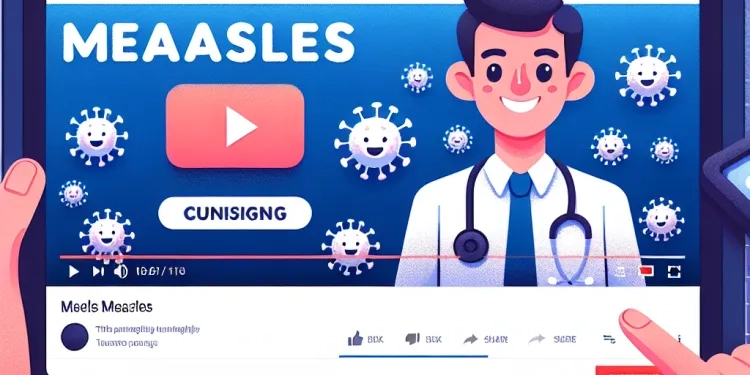
Measles
Relevance: 100%
-

Is there a treatment for measles?
Relevance: 95%
-

Is there a treatment for measles?
Relevance: 95%
-
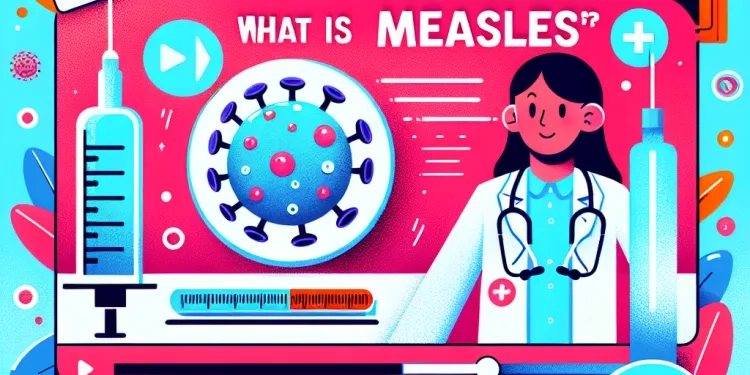
What is measles?
Relevance: 94%
-

How is measles transmitted?
Relevance: 91%
-

What are the symptoms of measles?
Relevance: 91%
-

How contagious is measles?
Relevance: 91%
-

Can measles be serious?
Relevance: 91%
-

How is measles transmitted?
Relevance: 91%
-
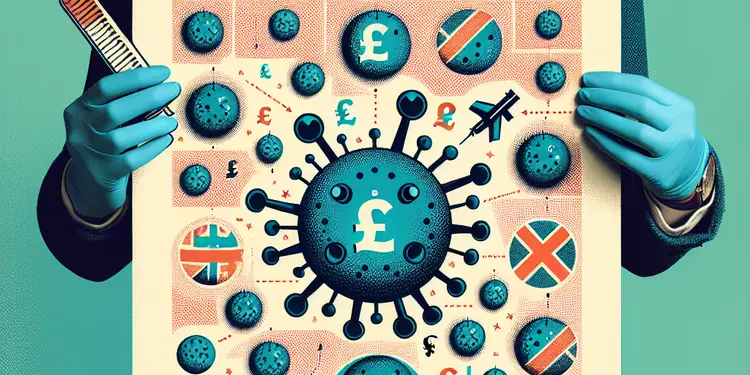
How is measles spread?
Relevance: 90%
-

Are measles outbreaks common in the UK?
Relevance: 90%
-

Can measles be treated?
Relevance: 90%
-

What are the symptoms of measles?
Relevance: 90%
-

Are measles cases rising in the UK?
Relevance: 90%
-

Is Rubella the same as measles?
Relevance: 90%
-

What are the symptoms of measles?
Relevance: 90%
-
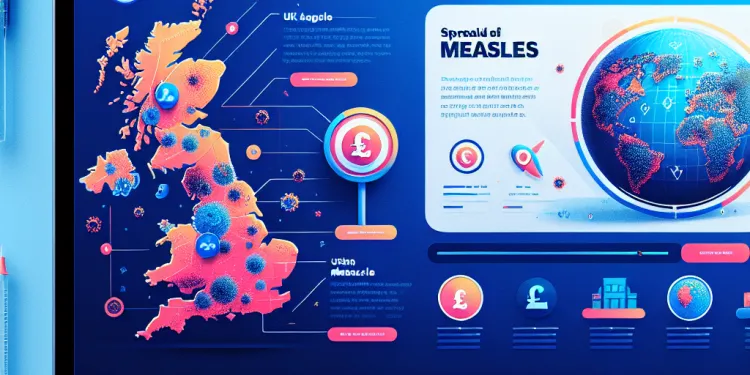
Are measles more common outside of the UK?
Relevance: 87%
-

Can measles cause complications?
Relevance: 87%
-

Are adults in the UK at risk from measles?
Relevance: 86%
-
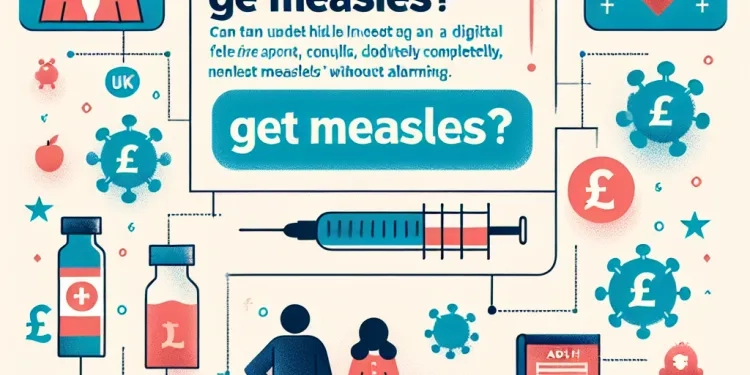
Can adults get measles?
Relevance: 86%
-

Why is measles less common in the UK?
Relevance: 86%
-
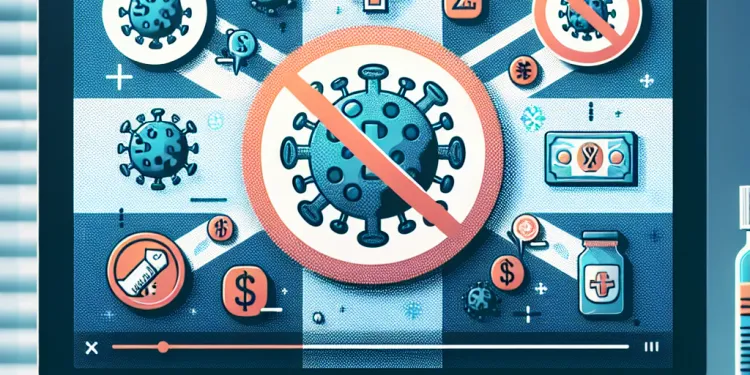
How can measles be prevented?
Relevance: 86%
-

Are measles cases currently rising in the UK?
Relevance: 86%
-

How long is a person with measles contagious?
Relevance: 84%
-

Who is most at risk from measles?
Relevance: 84%
-

What should I do if I suspect I have measles?
Relevance: 84%
-

How does the UK monitor measles outbreaks?
Relevance: 84%
-

Why are measles outbreaks still occurring?
Relevance: 84%
-

What is causing the rise in measles cases in the UK?
Relevance: 83%
-
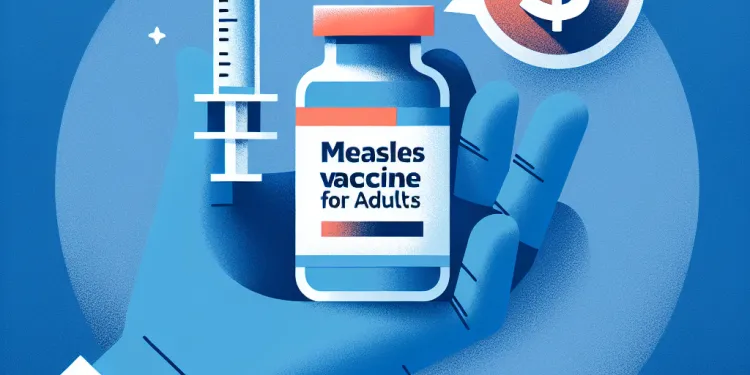
Can the measles vaccine be given to adults?
Relevance: 83%
-
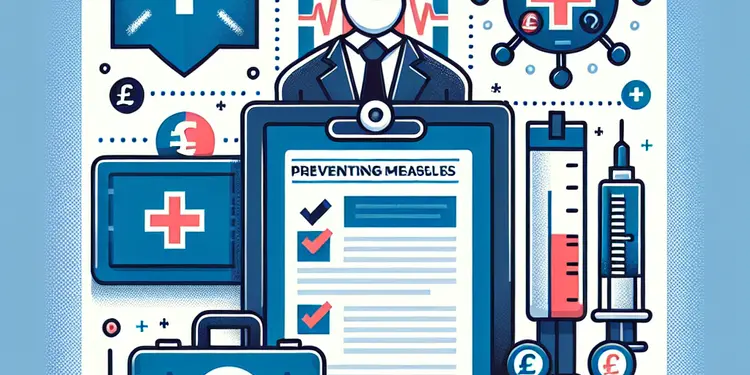
How can measles outbreaks be prevented?
Relevance: 82%
-

What complications can arise from measles?
Relevance: 82%
-

Which countries have higher rates of measles?
Relevance: 82%
-
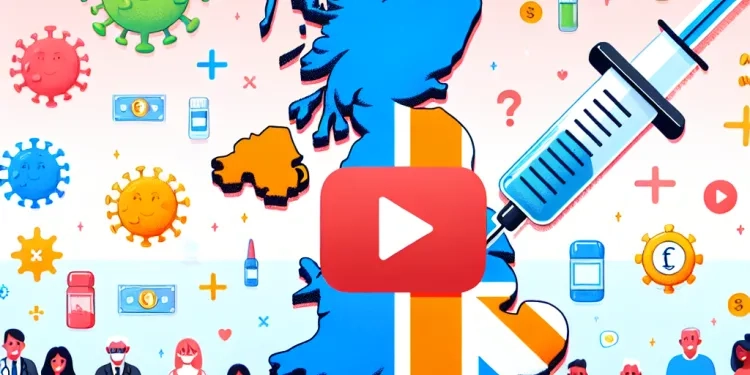
What is the current measles vaccination coverage in the UK?
Relevance: 82%
-

How does vaccination affect measles rates?
Relevance: 81%
-

Is there a risk of global spread if measles cases rise in the UK?
Relevance: 81%
-

Is it necessary to get a measles vaccine before travelling?
Relevance: 81%
-
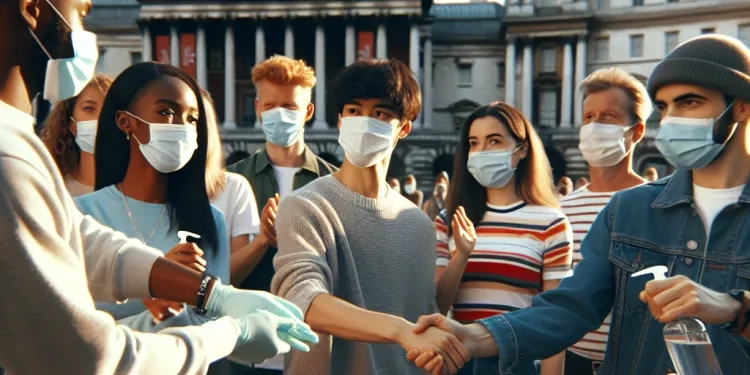
What should you do during a measles outbreak?
Relevance: 80%
-

Why has the UK lost its measles elimination status?
Relevance: 80%
-
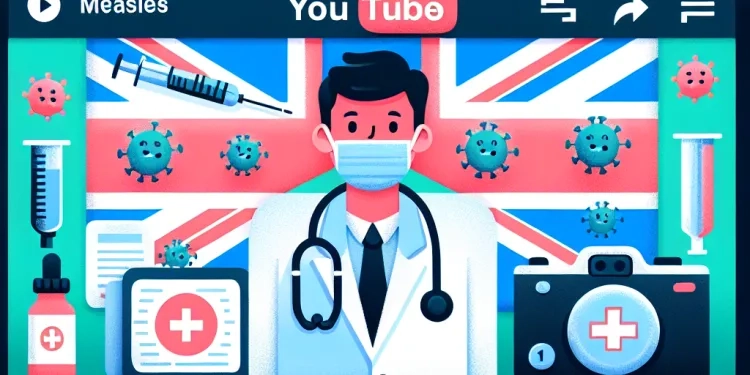
Can you get measles more than once?
Relevance: 79%
Can Measles Be Serious?
Measles, caused by the measles virus, is a highly contagious infectious disease. While many people recover without complications, measles can be serious and lead to severe health issues, especially in certain populations.
Complications of Measles
Measles complications can range from mild to severe. Common complications include diarrhea and ear infections. However, more serious complications affect approximately 1 in every 1,000 to 2,000 measles cases. These severe complications include pneumonia, which is a leading cause of measles-related deaths, and encephalitis, an inflammation of the brain that can lead to permanent brain damage or death.
Risk Factors
Individuals most at risk of serious complications include young children under the age of five, adults over the age of 20, pregnant women, and individuals with weakened immune systems, such as those with HIV/AIDS or other health conditions that compromise the immune system. Malnutrition and vitamin A deficiency also increase the risk of severe illness from measles.
Prevention and Vaccination
The most effective way to prevent measles and its complications is through vaccination. The MMR (measles, mumps, rubella) vaccine is highly effective and widely used in the UK. It is recommended for children in two doses, the first around the age of one year and a second dose before school entry. Herd immunity, achieved through high vaccination rates, is crucial for protecting those who cannot be vaccinated due to medical reasons.
Public Health Impact
The UK, like many countries, has seen a reduction in measles cases due to robust vaccination programs. However, vaccination coverage must be maintained to prevent outbreaks. In areas where vaccination rates fall, measles can become a public health issue once again, posing a significant risk to vulnerable populations and straining healthcare resources.
Can Measles Be Serious?
Measles is an illness caused by a virus. It is very easy to catch. Many people get better without problems, but measles can be dangerous. It can cause serious health problems, especially for some people.
Complications of Measles
Measles can cause small or big problems. Common ones are runny tummy (diarrhea) and sore ears (ear infections). But sometimes, about 1 in every 1,000 to 2,000 people with measles get very sick. They might get pneumonia, which makes it hard to breathe and can be deadly. Measles can also cause the brain to swell (encephalitis). This is very serious and can cause brain damage or death.
Risk Factors
Some people are more likely to get very sick from measles. These people include young children under five years old, adults over 20 years old, pregnant women, and people with weak bodies (immune systems), like those with HIV/AIDS. Not having enough good food (malnutrition) or not enough vitamin A can also make measles worse.
Prevention and Vaccination
The best way to stop measles is to get a vaccine. The MMR vaccine protects against measles, mumps, and rubella. It works very well. Children should get it twice: once when they are about one year old and again before they start school. When lots of people get the vaccine, it helps protect everyone, even those who cannot have the vaccine because they are sick.
Public Health Impact
In the UK, fewer people get measles now because of vaccines. But people must keep getting vaccinated to stop measles from spreading. If not enough people get the vaccine, measles can become a big problem again. This can be dangerous for people who cannot fight off sickness easily and can make hospitals very busy.
Frequently Asked Questions
Can measles be serious?
Yes, measles can be serious. It can lead to severe complications such as pneumonia, encephalitis (swelling of the brain), and can sometimes be fatal, especially in young children and people with weakened immune systems.
Who is most at risk of serious complications from measles?
Young children, pregnant women, and people with weakened immune systems are most at risk of developing serious complications from measles.
Can measles be prevented?
Yes, measles can be effectively prevented through vaccination. The MMR (measles, mumps, and rubella) vaccine is highly effective at preventing measles.
What are the symptoms of measles?
Symptoms of measles include a high fever, cough, runny nose, red and watery eyes, and a characteristic rash that usually appears after several days.
How is measles transmitted?
Measles is highly contagious and is spread through respiratory droplets from coughing and sneezing. It can also linger in the air or on surfaces for several hours.
What should someone do if they suspect they have measles?
If you suspect you have measles, you should contact your GP by phone before visiting, to prevent spreading the virus. It’s important to rest, stay hydrated, and avoid contact with others.
How long is the incubation period for measles?
The incubation period for measles is typically 10-12 days from exposure to the onset of symptoms. The rash usually appears around 14 days after exposure.
Is there a treatment for measles?
There is no specific antiviral treatment for measles. Care involves supportive management, such as rest, fluids, and fever control. In some cases, vitamin A supplements may be recommended.
Can adults get measles?
Yes, adults who have not been vaccinated or have not had measles before can contract the disease.
Does measles immunity last a lifetime?
Yes, individuals who have been infected with measles or have been vaccinated against it typically develop immunity that lasts for life.
How effective is the MMR vaccine?
The MMR vaccine is about 97% effective at preventing measles when two doses are administered.
Why is high vaccination coverage important for preventing measles?
High vaccination coverage is crucial to achieving herd immunity. This helps protect those who cannot be vaccinated, such as infants and individuals with immune deficiencies.
Is measles still common in the UK?
Measles cases have significantly reduced in the UK due to vaccination, but outbreaks can still occur, especially if vaccination rates fall.
What should parents know about measles vaccination for their children?
Parents should ensure their children receive the MMR vaccine as per the NHS schedule, typically given at 1 year of age and a second dose before starting school.
What are the travel recommendations regarding measles?
Travellers should ensure they are fully vaccinated against measles before travelling, especially to areas where measles is more common or outbreaks are occurring.
Is measles dangerous?
Yes, measles can be very serious. It can make you very sick. You might get lung problems like pneumonia. It can also make your brain swell, which is called encephalitis. Sometimes, measles can be so bad that it can cause death. This is especially true for young children and people who are already sick.
Here are some tips to stay safe:
- Get a measles shot. It helps protect you from getting sick.
- Wash your hands often with soap and water to keep germs away.
- If you feel sick, tell an adult and go to the doctor.
If you want to know more, ask a teacher, nurse, or a grown-up you trust. They can help you understand better.
Who can get very sick from measles?
Measles can make some people very sick. Young children, women who are going to have a baby, and people who don't have strong body defenses are most at risk. This means they can get very sick if they catch measles.
Can you stop measles?
Yes, you can stop measles. There is a shot called a vaccine that helps keep you safe. The vaccine is called the MMR vaccine. MMR means Measles, Mumps, and Rubella. Ask your doctor about this vaccine.
Here are some tips to help you:
- Get the vaccine on time.
- Wash your hands often to stay clean.
- Stay away from people who are sick.
If you have questions, ask a grown-up or your doctor. They can help you understand more.
Yes, you can stop people from getting measles with a vaccine. The MMR vaccine stops measles. It also stops mumps and rubella. The vaccine works really well.
What happens if you have measles?
When you have measles, you might:
- Have a fever. This means you feel very hot.
- Cough a lot.
- Have a runny nose. This means your nose drips.
- Have red eyes that hurt in bright light.
- Get a rash. This is when red spots appear on your skin.
If you think you have measles, it is a good idea to:
- Rest in a quiet room.
- Drink plenty of water.
- Ask someone to take you to see a doctor.
Using pictures and simple words can help you understand better. Ask someone you trust to explain words you don’t know.
Measles can make you very sick. You might get:
- A high fever (feel very hot)
- A bad cough
- A runny nose (snot coming out)
- Red eyes that water a lot
- Red spots on your skin after a few days
If you find reading hard, try using tools that read text out loud or show pictures.
How do people catch measles?
Measles is a disease.
You can catch it from other people.
When someone with measles coughs or sneezes, tiny germs go into the air.
If you breathe in these germs, you can get sick.
Washing your hands often and covering your mouth when you cough or sneeze helps stop germs.
A vaccine can protect you from measles.
Measles is easy to catch. You can get it from tiny drops when someone coughs or sneezes. These drops can stay in the air or on things for hours.
What to Do If You Think You Have Measles
If you think you have measles, do this:
- Tell a grown-up or a caregiver.
- Call a doctor to talk about your symptoms.
- Stay at home and rest.
- Do not go to school or play with other kids.
- Drink lots of water.
If you need help understanding, ask a caregiver or use a picture chart to guide you.
If you think you might have measles, call your doctor before going to see them. This helps stop the virus from spreading. Make sure to rest, drink lots of water, and stay away from other people.
How many days before measles shows symptoms?
It usually takes about 10 days after catching measles to start feeling sick. This is called the "incubation period."
To help understand, you can use:
- Pictures or drawings to show how the days pass.
- A calendar to mark the days.
Measles usually takes 10 to 12 days to start showing symptoms after you are around someone who has it. You might see a rash about 14 days after being around the virus.
Can measles be treated?
Measles does not have medicine to make it go away quickly. But, there are ways to help someone feel better.
- Rest: Get plenty of sleep.
- Fluids: Drink lots of water or juice.
- Medicine: Use medicine like paracetamol to help with fever. Ask a doctor first.
- Vitamin A: Doctors sometimes give Vitamin A to help.
If you feel very sick, it is good to see a doctor. They can help you get better. Using pictures or apps that help with reading can make learning about measles easier.
There is no special medicine to stop measles. You can help by resting, drinking lots of water, and taking medicine if you have a fever. Sometimes, doctors say to take vitamin A.
Can grown-ups get measles?
Yes, grown-ups can get measles. It's a sickness with a rash and fever.
If you're not sure if you had your measles shot, ask your doctor. You can also look at the vaccination record.
Using pictures can help. Try looking at images of healthy and sick people to understand better.
Yes, grown-ups who have not gotten the measles shot or have never had measles can get sick with it.
Do you stay safe from measles your whole life?
Yes, if you had measles or got the measles shot, you usually stay safe from it forever.
How well does the MMR vaccine work?
The MMR vaccine stops you from getting measles. It works almost all the time if you get two shots. That means if 100 people get the vaccine, 97 of them won't get measles.
Why is it important for many people to get the measles vaccine?
It's important for lots of people to get the measles shot because it helps stop the disease from spreading. When most people have the shot, it makes it harder for measles to spread to others.
If a lot of people are protected, it's called "herd immunity." This even helps keep people safe who can't get the shot.
To help understand this better, you can watch videos or ask a grown-up to explain it with pictures.
It is very important to give lots of people vaccines. This helps protect everyone. It also helps people who cannot get vaccines, like babies and people who are sick.
Do people in the UK still get measles?
Measles is a sickness caused by a virus. It's not as common in the UK now because many people get a vaccine (a special medicine) that helps prevent it. But sometimes, measles can still happen. It's important to have the vaccine to stay safe.
If you want to know more or need help understanding, it might be nice to talk to a doctor or someone who works with health. They can give you information and explain things in a way that's easy to understand.
There are not many people with measles in the UK because of vaccines. But if not enough people get their vaccines, there might be more cases of measles.
What do parents need to know about measles shots for their kids?
If you have kids, it’s important to know about the measles shot. This shot helps keep your child safe and healthy. Measles is a sickness that can make kids very sick. The shot stops them from catching it.
Here are some simple tips:
- Talk to your doctor. They can tell you when your child needs the shot.
- Keep a record of your child's shots. This is important for school and travel.
- If you have questions, ask your doctor or nurse. They can help you understand.
Some tools that might help:
- Use a calendar to mark when the next shot is due.
- Read books with your child about why shots are important.
Mums and dads should make sure their kids get the MMR shot. The NHS says kids should get it when they are 1 year old. They should get a second shot before they start school.
How can I stay safe from measles when I travel?
Before you go on a trip, make sure you have had all your measles shots. This is really important if you are going to a place where lots of people have measles.
Useful Links
This website offers general information and is not a substitute for professional advice.
Always seek guidance from qualified professionals.
If you have any medical concerns or need urgent help, contact a healthcare professional or emergency services immediately.
Some of this content was generated with AI assistance. We’ve done our best to keep it accurate, helpful, and human-friendly.
- Ergsy carfully checks the information in the videos we provide here.
- Videos shown by Youtube after a video has completed, have NOT been reviewed by ERGSY.
- To view, click the arrow in centre of video.
- Most of the videos you find here will have subtitles and/or closed captions available.
- You may need to turn these on, and choose your preferred language.
- Go to the video you'd like to watch.
- If closed captions (CC) are available, settings will be visible on the bottom right of the video player.
- To turn on Captions, click settings .
- To turn off Captions, click settings again.
More Items From Ergsy search
-

Measles
Relevance: 100%
-

Is there a treatment for measles?
Relevance: 95%
-

Is there a treatment for measles?
Relevance: 95%
-

What is measles?
Relevance: 94%
-

How is measles transmitted?
Relevance: 91%
-

What are the symptoms of measles?
Relevance: 91%
-

How contagious is measles?
Relevance: 91%
-

Can measles be serious?
Relevance: 91%
-

How is measles transmitted?
Relevance: 91%
-

How is measles spread?
Relevance: 90%
-

Are measles outbreaks common in the UK?
Relevance: 90%
-

Can measles be treated?
Relevance: 90%
-

What are the symptoms of measles?
Relevance: 90%
-

Are measles cases rising in the UK?
Relevance: 90%
-

Is Rubella the same as measles?
Relevance: 90%
-

What are the symptoms of measles?
Relevance: 90%
-

Are measles more common outside of the UK?
Relevance: 87%
-

Can measles cause complications?
Relevance: 87%
-

Are adults in the UK at risk from measles?
Relevance: 86%
-

Can adults get measles?
Relevance: 86%
-

Why is measles less common in the UK?
Relevance: 86%
-

How can measles be prevented?
Relevance: 86%
-

Are measles cases currently rising in the UK?
Relevance: 86%
-

How long is a person with measles contagious?
Relevance: 84%
-

Who is most at risk from measles?
Relevance: 84%
-

What should I do if I suspect I have measles?
Relevance: 84%
-

How does the UK monitor measles outbreaks?
Relevance: 84%
-

Why are measles outbreaks still occurring?
Relevance: 84%
-

What is causing the rise in measles cases in the UK?
Relevance: 83%
-

Can the measles vaccine be given to adults?
Relevance: 83%
-

How can measles outbreaks be prevented?
Relevance: 82%
-

What complications can arise from measles?
Relevance: 82%
-

Which countries have higher rates of measles?
Relevance: 82%
-

What is the current measles vaccination coverage in the UK?
Relevance: 82%
-

How does vaccination affect measles rates?
Relevance: 81%
-

Is there a risk of global spread if measles cases rise in the UK?
Relevance: 81%
-

Is it necessary to get a measles vaccine before travelling?
Relevance: 81%
-

What should you do during a measles outbreak?
Relevance: 80%
-

Why has the UK lost its measles elimination status?
Relevance: 80%
-

Can you get measles more than once?
Relevance: 79%


